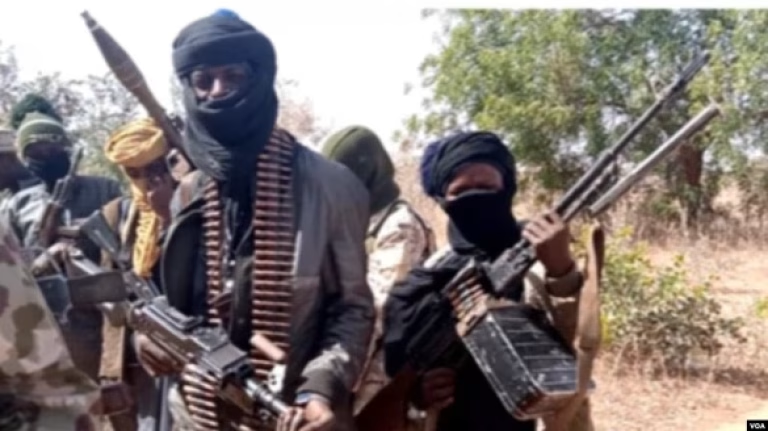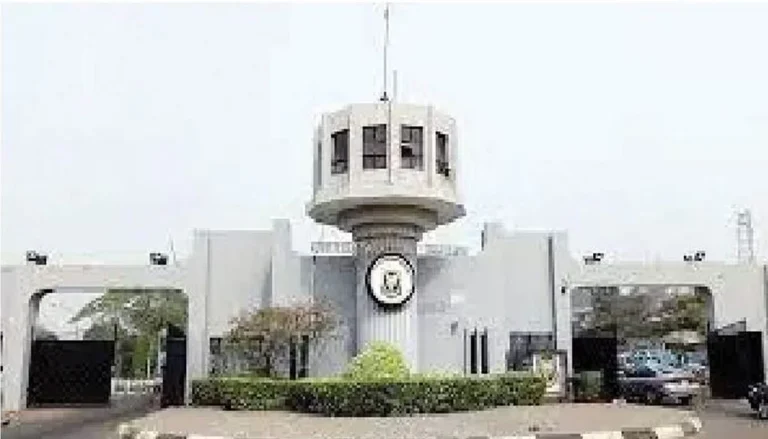
As Nigeria continues to search for solutions for the pervasive insecurity in the country, especially kidnapping and banditry, experts in the security space have expressed divergent opinions on President Bola Ahmed Tinubu’s plan to deploy Forest Guards with better training as a measure to secure the country.
This is even as gunmen have reportedly invaded Army Post Housing Estate, Kurudu, in the Federal Capital Territory (FCT) and abducted two persons, reports The Guardian. Kurudu, one of the communities in the outskirts of Abuja, shares boundary with Nasarawa State.
The incident occurred barely two days after the police high command launched a major operation against kidnappers and bandits in Abuja general area.
The police have been mum over the incident, which reportedly happened about 10.00pm in the Phase Two area of the estate on Thursday. Spokesperson of the FCT Police Command, Josephine Adeh, declined comment on the incident, urging newsmen to contact the army on the incident.
A source at the Guards Brigade, the major protectors of the seat of power and the president, also declined to comment on the matter.
With the launch of a Special Intervention Squad (SIS) in the FCT to address the increasing spate of insecurity in the territory, residents had thought that the end of the kidnapping spree had come but the latest incident has proved them wrong.
However, security experts in the country sharply differed on the federal government’s plan to deploy Forest Guards with better training, modern technological gadgets and weapons to strengthen the security situation in the country.
President Tinubu had disclosed the plan last weekend, when he received members of the Progressive Governors Forum (PGF) at the State House, Abuja.
While some security experts spoke in favour of the plan, others vehemently kicked against it, saying it will not curb kidnapping and banditry in the nation’s vast forests.
Former Director of the Department of State Services (DSS), Dennis Amachree, said Forest Guards creation would not curb kidnappings and banditry.
“Forest Guards will not curb kidnapping and banditry. What Nigeria needs at this time is a highly trained Hostage Rescue Police/DSS Units, armed and trained in special weapons and tactics to directly confront the menace of banditry and kidnapping. Anything else is ineffective window dressing,” he said.
Also speaking, Certified Protection Officer, Mr. Frank Oshanugor, said the plan would have been a very good step towards curbing insecurity in the country but noted that the sophistication that has been brought into crime particularly may make the plan dead at birth.
He noted: “The reason is that if Nigerian security forces, which include the military, police, DSS and other paramilitary agencies find it difficult to contend with kidnappers, bandits, terrorists and other criminal elements, one begins to wonder the type of magic wands officials of the proposed Forest Guards would bring to defeat the criminals.
“Personally, I do not think that the establishment of Forest Guards in the technology driven 21st Century Nigeria would curb kidnapping and other criminalities. Let us remind ourselves that one of the reasons for the introduction of the National Identification Number (NIN) and its integration into the nation’s mobile telephony is to easily track the terrorists, particularly kidnappers, who like taking their victims into the forest.
“We should wonder why it has been difficult for the security agencies to track the phones used by the kidnappers operating from forest areas where they usually keep their victims hostage,” he said.
He urged the government to assemble electronic security experts and make them work with the security agencies with respect to tracking the locations of the kidnappers who reside in the bush with their victims and demand hundreds of millions as ransom.
Oshanugor also advised the federal government to embark on re-profiling some categories of security personnel both in the military, police and others with a view to getting out those whose background lacks credibility.
“Many so-called ‘repentant’ terrorists were reportedly recruited into the military and police during the Buhari administration. Such elements are dangerous to the nation’s security,” he added.
To former President of the Private Security Practitioners Association of Nigeria, Dr. Wilson Esangbedo, creating Forest Guards is not the problem, but funding it properly.
Esangbedo said: “If they are properly trained, well armed and given adequate pay, it will curb insecurity but if the reverse is the case, they may turn against the populace they are supposed to protect. Will it curb kidnapping? Yes, it will, if they are properly motivated.
“Good pay, proper compensation, insurance benefits and modern arms and equipment are special steps the government must take to enable them to deliver on the assignment and also ensure that they don’t clash with other security agencies.”
On her part, the Managing Director/Chief Executive of Transworld Security and President of School of Management and Security, Dr. Victoria Ekhomu, said the reintroduction of Forest Guards at the federal level is a step in the right direction.
Ekhomu said: “Reintroduction of Forest Guards at federal level to curb insecurity in Nigeria is a welcome development for the federal government to address the criminality being perpetrated by bandits and herdsmen who have taken over our forests since the Buhari administration. Several innocent citizens have been kidnapped for ransom and some killed in our forests by these criminals.
“Some victims have relayed their traumatic experiences and narrated what they saw in these forests, saying the criminals were seen to be highly organised and had top backings from the way they carried out their transactions and picked their ransom monies.
“So, I commend the government for venturing to take some steps to take over our forests with the intention to secure them to prevent kidnappings and these heinous crimes, which have persisted for so long and have driven many citizens out of Nigeria, discouraged many in the Diaspora from returning home while driving out and discouraging foreign investment in Nigeria and even tourism.”
On the important steps the government should take to birth the initiative and ensure its success, Ekhomu, who is also the President of Association of Industrial Security and Safety Operators of Nigeria (AISSON), added: “The first step will be to clear the forests of these bandits. To commence this, I will recommend that the government should give a time frame for the bandits to vacate our forests.
“Thereafter, the government should utilise drones and helicopters to bomb out these enclaves and destroy these bandits. This will drive these bandits from Nigerian forests, as was done in Ghana. It is after attempts have been made to clear our forests of these bandits from their enclaves that Forest Guards can then be deployed to various places in the forests to secure these areas.
“Even with the deployment of Forest Guards, drones kitted with cameras and helicopters can then be deployed to patrol these forests on a continuous basis.
“Also, the deployment of Forest Guards will drastically reduce kidnappings in Nigeria if utilised in combination with inspections and patrols using the drones and helicopters with armed military, police and armed guards, who will work together from fusion centres around the country with their commands that consists of the various armed security forces and private security companies whose responsibilities are to protect our forests around the country.”
Also, security consultant and practitioner, Mr. Chuks Maha, said the deployment of Forest Guards would reduce but not eliminate kidnapping. He noted that the crime has become a syndicated business with very high returns on virtually no investment.
“It’s lucrative, exploitative and close to zero chances of being caught. Even when caught, what happens next? Nothing! The case is closed. The laws are not enabling enough to eliminate this crime. Let’s make it a death sentence with swift dispensation of the law and justice,” he said.
On the special steps the government must take, Maha said the forest guards to be deployed must be given para-military training and be armed with assault rifles and the latest tracking equipment.
“There must exist a fluid interdepartmental synergy between the forest guards and all security agencies. To ensure this, personnel must be drawn from the military, Police, DSS, NDLEA, etc and drafted into the composition of Forest Guards alongside new recruits.
“In the beginning and periodically, forest patrols must be a Joint Task Force to bring about an acceptance of this new agency. There should be no forest, bush or grass 250 metres near any highway to enable motorists to have clear views of the roads while on it.
“All highways must have 24-hour heavy armed patrol. The civil populace, if qualified, should be allowed to carry firearms if licenced,” Maha said.
However, the FCT Police Command has confirmed the arrest of one Chinaza Phillip, a notorious Abuja kidnapper, by police operatives of the Kaduna State Police Command on Thursday.
The police source, who confirmed the arrest, said the suspect was handed over to FCT Police Command, yesterday, and was in their custody. Meanwhile, the military high command said it has increased surveillance on communities in Abuja being terrorised by bandits.
Director Defence Media Operations (DMO), Major General Edward Buba, who made the disclosure in a statement noted that the armed forces is not unaware of the terrible impact of kidnappings on the families of those affected.
“Indeed, our hearts and thoughts go to their families and loved ones. We also recognises the fear that these kidnappings creates among the citizenry, following recent events in the FCT.
“While troops probably don’t have all the answers as at now. Citizens should be rest assured that the armed forces are working relentlessly to address the hurtful situation. Additionally, troop are synergising with other security services and stakeholders to investigate and gather more intelligence on these kidnapping gangs, particularly around the FCT.
“Troops have prioritised the areas of these kidnappings, increasing both ground and air surveillance over the areas. Technologies have also been deployed to more easily detect these kidnapping gangs in their hideouts and enclaves.
“Furthermore, troops increased the tempo operations in order to find, degrade and destroy the terrorists and cohorts wherever they were hiding. In the FCT and environs, some of the areas cleared by troops so far include Kawu, Gaba, Deidei, Kubwa Hills, and Ushafa in the FCT, Garam, Jibi, and back of Zuma Rock in Niger State, as well as Gidan Dogo and Kuyeri/Kuyeri Hills in Kaduna State. There have also been intensified night patrols in the Mpape, Kubwa, Lugbe, Pyakasa, Keti, Gbaupe, Gbaukuchi, and Airport Rd among others.”
He noted that in the Northeast, the air component of Operation HADIN KAI, on January 10, 2024, eliminated three top ISWAP terrorists commanders in Borno State.
“The three commanders identified as; Abou Maimuna, Abou Zahra and Commander Saleh with their lieutenants in a canoe, were targeted and destroyed by the air strikes.
“The armed forces will always be mindful of the threat by kidnapping gangs and terrorist across the country. Accordingly, we will continually review our internal processes in order to deal with these threats both now and in the long term. The military is determined to give the situation the seriousness it deserves so as to create a safer environment for citizens,” he said.







